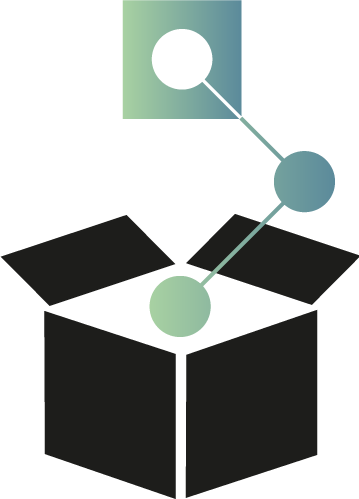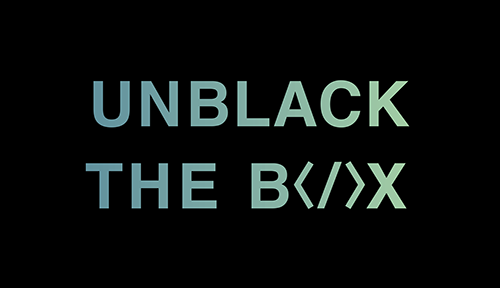Selected sources and websites for further reading

Article: ‘Mit Antolin punkten oder: Wie sich mit dem Leseförderprogramm der Bock zum Gärtner macht’ (German)
https://www.pedocs.de/volltexte/2020/21100/pdf/PaedKorr_2018_57_Jornitz_Leser_Mit_Antolin_punkten.pdf
In their contribution, Sieglinde Jornitz and Christoph Leser analyse the Antolin platform focusing on two aspects: what type of reading promotion the programme fosters, and to what extent this is related to digitisation – as well as how these two aspects relate to the pedagogical aspiration of promoting reading.

Autonom und mündig am Touchscreen. Für eine konstruktive Medienarbeit in der Schule (German)
https://www.beltz.de/fachmedien/paedagogik/produkte/produkt_produktdetails/46429-autonom_und_muendig_am_touchscreen.html
An anthology edited by Ralf Lankau, which examines the transformation of schools and teaching from different perspectives. The volume offers practical examples for digital governance and the quantification of learning processes and highlights alternatives for a responsible and pedagogically appropriate use of digital media in the classroom.

Bildungsmaterialien von Digitalcourage e.V. (German)
https://digitalcourage.de/kinder-und-jugendliche
Besides their campaigns on data protection and digital surveillance, the Digital Courage initiative also provides numerous materials for educating about digital media in schools. For example, an education package has been developed for young people, schools, teachers and parents, and ten guidelines for designing digital media have been published. Subject to the motto “schools helping schools“, Digital Courage has further launched a network for the exchange of free, open source school software.

Code Acts in Education
https://codeactsineducation.wordpress.com
Blog by Scottish colleague Ben Williamson with current comments and information about the datafication, digitisation and algorithmisation of schools.

Evidence of a Potential
https://jesperbalslev.dk/evidence-of-a-potential-ph-d-thesis/
In his Doctoral thesis, Jesper Balslev systematically evaluates existing studies on the effects of digital learning tools. His analysis shows that there is a wide gap between promises or hopes versus the actual evidence of digital education

Free messengers at schools / educational institutions (German)
https://www.freie-messenger.de/bildungstraeger/
The website provides information on open source and secure alternatives to messenger services such as WhatsApp. In the section for educational institutions, the website further offers substantial background information on the use of and legal conditions for different messenger services in schools, and provides teaching material.

GBW-Flugschrift: Alternative IT-Infrastruktur für Schule und Unterricht (German)
https://bildung-wissen.eu/wp-content/uploads/2020/09/lankau_flugschrift_web.pdf
A pamphlet by Ralf Lankau from the Society for Education and Knowledge (Gesellschaft für Bildung und Wissen e.V) on the usage of alternative IT infrastructures in schools for more emancipation and autonomy.

Glossar Digitale Souveränität (German)
https://www.bigdataliteracy.net/glossar/
Emerging from a project on digital autonomy, the glossary explains terms relating to educational demands for living and acting autonomously and independently in a digital world. The glossary includes terms from media studies, media education and law, for example “algorithm”, “data literacy” or “censorship”.

Learning Analytics und Big Data in der Bildung (German)
www.hsu-hh.de/ggb/wp-content/uploads/sites/679/2019/11/2019Hartong_Learning-analytics_GEW.pdf
A publication by Sigrid Hartong that provides a critical overview of learning analytics and big data in education. The text illustrates a political data programme as a counter model to common datafication and digitisation strategies.

Lobby-Check: Für eine werbe- und lobbyismusfreie Schule (German)
https://www.gew.de/index.php?eID=dumpFile&t=f&f=98781&token=95345e3ed9171e2980ce966582d075eb4da4acbe&sdownload=&n=2020-08-Lobbycheck-8s-LDin.pdf
Brochure published by the trade union of educators and scientists (Gewerkschaft Erziehung und Wissenschaft, GEW) with information and critical questions that educational institutions should consider before using a new learning technology.

MünDig-Studie Waldorf: Mündigkeit und Digitalisierung an KiTas und Schulen (German)
https://muendig-studie.de/wp-content/uploads/2022/07/Ergebnisbericht-Waldorf.pdf
In this detailed report on the MünDig study Waldorf, the research group run by Paula Bleckmann (UNBLACK THE BOX) presents findings from an explorative-quantitative online survey of parents, pedagogues and pupils on media education at reform pedagogical schools and kindergartens. All three groups were surveyed using the newly developed instrument “Media Maturity Matrix“, which is used to assess media education attitudes and practices. The findings reveal the methods and contents of current teaching about digitisation. For English information on the study, see abstract on page 2 and Paula Bleckmann’s comment on the study.

Politikbrief von Wikimedia zur Nationalen Bildungsplattform (German)
https://upload.wikimedia.org/wikipedia/commons/5/5a/Politikbrief_Sommer_2022_Wikimedia_Deutschland_e._V.pdf
This policy letter by Wikimedia, written in summer 2022, provides recommendations on what should be considered when developing the national education platform in Germany in regards to openness, values and standards. Among others, Heidrun Allert and Christoph Richter (UNBLACK THE BOX) along with Felicitas Macgilchrist were interviewed as experts and provided their views on the risks and opportunities of the platform that was commissioned by the Federal Ministry of Education and Research (page 5). Apart from the technical implementation of the national education platform, they discuss the underlying conceptual understanding of education.

Positionspapier der Vereinigung Deutscher Wissenschaftler e.V.: „Die Ambivalenzen des Digitalen“ (German)
https://vdw-ev.de/wp-content/uploads/2019/09/VDW-Positionspapier-Digitalisierung-Jahrestagung-2019.pdf
In their position paper, researchers from the association of German researchers (Vereinigung Deutscher Wissenschaftler e.V.) reflect on the accelerated digitisation and the resulting potential of an epochal change in society. They have defined ten core statements which also served as a basis for their annual meeting in 2019.

Schule digital: Wie ein Lock-In an Schulen der Gesellschaft schadet (German)
https://www.heise.de/hintergrund/Schule-digital-Wie-der-Lock-In-Effekt-unsere-Schulen-beschraenkt-6006927.html
Detailed and critical background article about the so-called “lock-in effect” – the long-term binding of customers to a certain product – in relation to software use and digital technologies used in schools.

Unterrichtsmaterial “Den digitalen Wandel verstehen” (German)
https://www.bpb.de/lernen/digitale-bildung/politische-bildung-in-einer-digitalen-welt/unterrichtsmaterialien/
With their teaching material on questions around the societal implications of digital technologies, the Federal Agency for Civic Education aims to improve the ‘digital literacy’ of teachers and learners. The material provides background information, two lesson plans and further materials on four different topics as freely available Open Educational Resources.

Vom Ozonloch für die „digitale Bildung“ lernen (German)
https://vdw-ev.de/paula-bleckmann-vom-ozonloch-fuer-die-digitale-bildung-lernen/
A critical contribution about a technology impact assessment of digital education.

Von der ‚Macht der Daten‘ zur ‚Gemachtheit von Daten‘. Praktische Datenkritik als Gegenstand der Medienpädagogik (German)
www.medialekontrolle.de/wp-content/uploads/2014/09/Dander-Valentin-2014-03-01.pdf
Paper by media pedagogue Valentin Dander about the need for a productive data criticism. Based on the example of Open Government Data, Dander further illustrates how such criticism could be implemented.

Warum unsere Daten wertvoll sind (German)
https://www.politische-bildung.nrw.de/digitale-medien/digitale-demokratiekompetenz/big-data/
Informational website by the state agency for civic education North-Rhine Westphalia together with UNBLACK THE BOX member Ina Sander. The site includes an introduction to the topic big data and an overview of numerous online tools that can be used to approach the topic critically – also with students.

What is critical big data literacy and how can it be implemented?
https://policyreview.info/articles/analysis/what-critical-big-data-literacy-and-how-can-it-be-implemented
Overview paper by Ina Sander (UNBLACK THE BOX), introducing and reflecting on the concept of “Critical Big Data Literacy” and highlighting different ways of promoting such literacy through online educational resources.

Zur (ambivalenten) Wirkmächtigkeit datengetriebener Lernplattformen: Eine Analyse des „Antolin“ Leseförderungsprogramms (German)
https://www.medienpaed.com/article/view/1091
A paper by UNBLACK THE BOX members Sigrid Hartong and Annina Förschler together with Anouschka Kramer, Claudia Meister-Scheytt and Jaromir Junne, which analyses the digital learning platform Antolin. The platform is critically reflected as a design-based, datafied and datafying form of a digital educational world.
